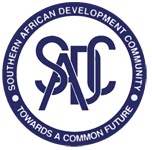MDC rejects SADC's 'co-ministering' proposal
 Johannesburg - Zimbabwean opposition leader Morgan Tsvangirai on Sunday rejected a proposal by the Southern African Development Community (SADC) to share control of the disputed Home Affairs Ministry with President Robert Mugabe.
Johannesburg - Zimbabwean opposition leader Morgan Tsvangirai on Sunday rejected a proposal by the Southern African Development Community (SADC) to share control of the disputed Home Affairs Ministry with President Robert Mugabe.
In a "poisoned" atmosphere like that currently between Tsvangirai's Movement for Democratic Change (MDC) and Mugabe's Zanu- PF, "quite clearly the concept of co-ministering cannot work," Tsvangirai said.
The party remains committed to a September 15 agreement to form a unity government with Mugabe, he said.
An emergency SADC summit on Zimbabwe ended earlier with a call on Mugabe's Zanu-PF and Tsvangirai's MDC to share control of home affairs - a hotly-disputed ministry, which brings with it control of the police and the government's electoral machinery.
"Whether the parties agree or not, that is the position of summit," SADC executive secretary Tomaz Salamao said.
Sunday's summit was seen as a chance to inject new life into Zimbabwe's rocky power-sharing deal.
Under the terms of that agreement, which Zimbabweans are hoping will kickstart the country's economic and political revival, Mugabe remains president and Tsvangirai becomes prime minister of a government of 31 ministries.
But the deal has stalled for two months on the issue of the distribution of cabinet posts.
The MDC insists on having full control of the Home Affairs Ministry, among others, in return for allowing Zanu-PF to retain defence, which includes control of the Army.
Tsvangirai accused Zimbabwe's neighbours of not having "the courage and decency of looking Mr Mugabe in the eyes and telling him his position was wrong."
The MDC also laid down as a precondition for the new government the passing of a constitutional amendment that will set out the division of powers between Mugabe and Tsvangirai. In particular, the party is looking for clarity on which leader would have the authority to hire and fire ministers.
In a hint at the party's growing sense of isolation, the MDC's position was less hardline than in previous days when it described the unity deal as a "corpse."
The party, which has few backers within SADC, apart from Botswana, Zambia and Tanzania, hoped that "progressive members of SADC and the African Union" would rally to their side and try to salvage the agreement, Tsvangirai said.
Arthur Mutambara, leader of an offshoot MDC faction that is also a party to the unity deal, has sided with Mugabe in the dispute over home affairs.
"This agreement is as good as it gets," Mutambara said. (dpa)